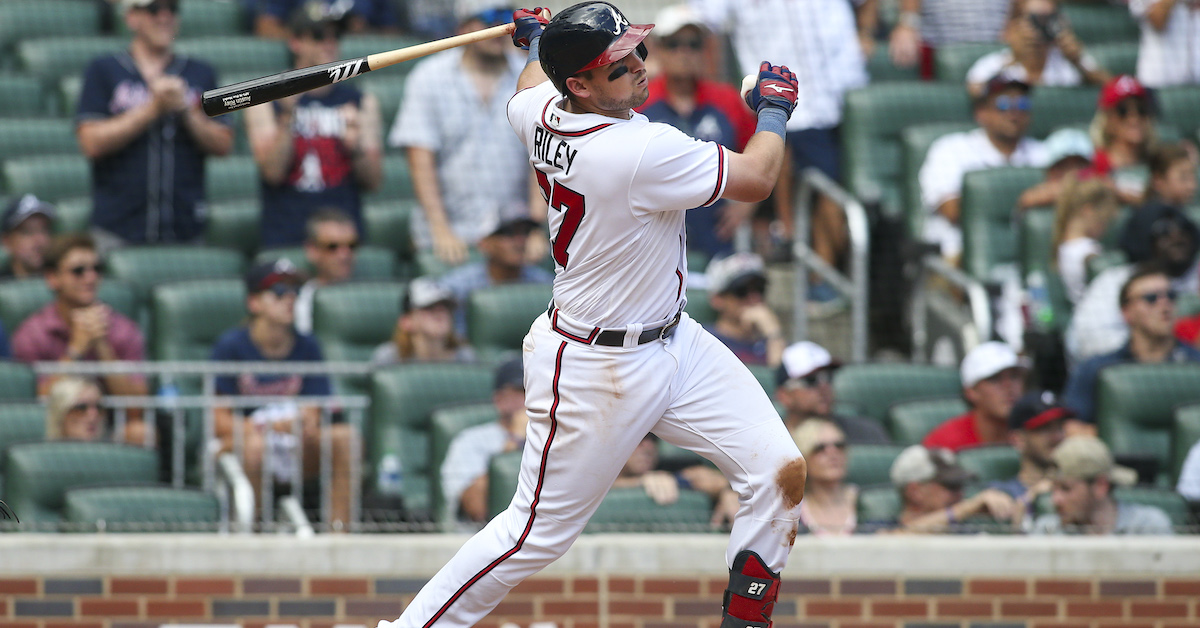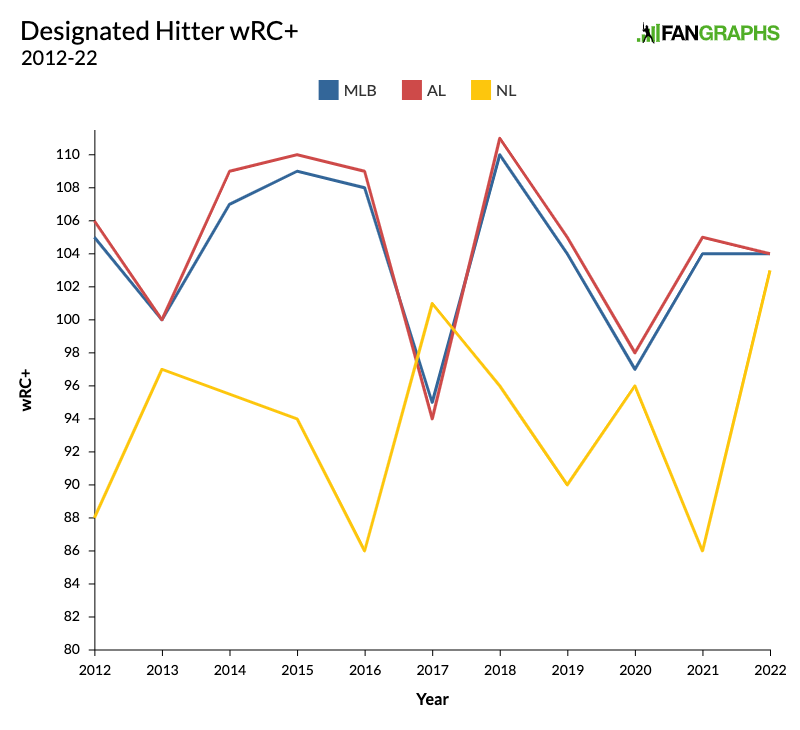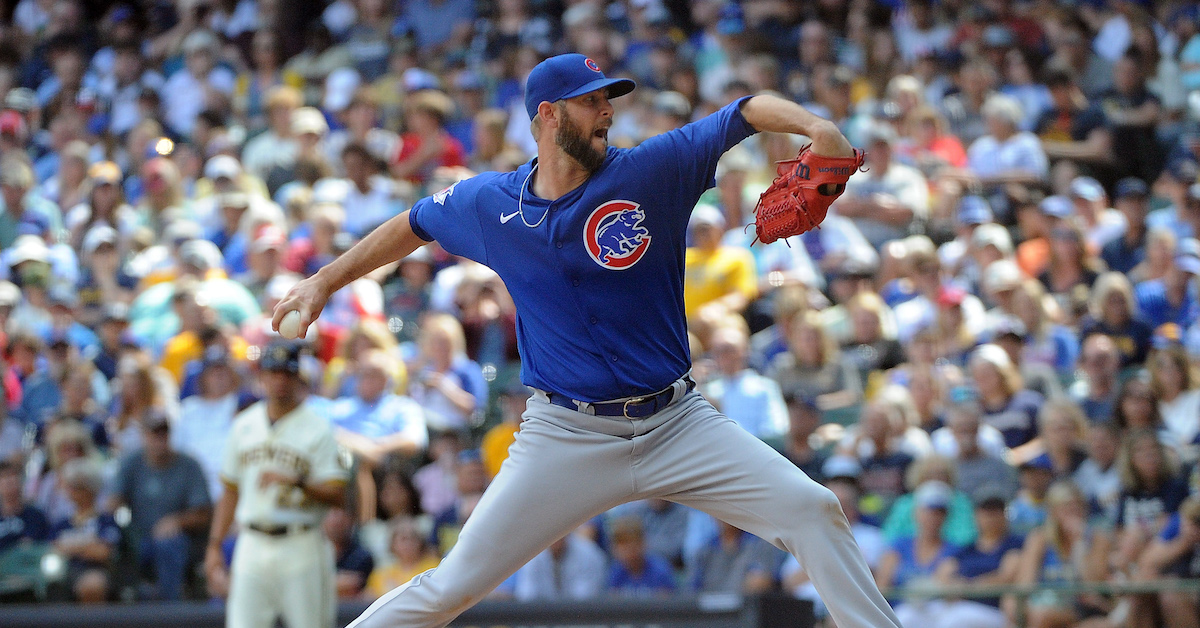Braves Lock Up Another Core Bat With 10-Year Extension for Austin Riley

If you ever wondered how committed the Braves were to Austin Riley, they expressed their feelings clearly on Monday, agreeing with him on a 10-year, $212 million contract that will keep him in the lineup through at least the end of the 2032 season. After 2021’s breakout campaign, Riley has proceeded to break out once more, hitting .301/.360/.604 for 4.6 WAR in 101 games, that slugging percentage being enough to lead all National League hitters. The Braves also get an option season for 2033.
As a prospect, Riley was at risk, at times, of falling into the tweener gap, that dreaded place where a player doesn’t field well enough to handle third base in the majors but also doesn’t have the bat to be a good starter at first. His runner-runner breakouts have eliminated the chances of that scenario; he’s adequate enough defensively to stick at the hot corner for now, and his bat is more than capable enough to keep him a plus at first or designated hitter.
Like most of the rest of the team, Riley got off to a relatively slow start this season; at one point in late May, his line stood at an unimpressive .224/.309/.436. But from that May 22 nadir, he’s wreaked havoc on pitching staffs around the league, putting up a monster .350/.395/.713 line with 21 homers in 61 games:
| Name | G | PA | HR | AVG | OBP | SLG | wRC+ | WAR |
|---|---|---|---|---|---|---|---|---|
| Austin Riley | 25 | 106 | 10 | .420 | .453 | .870 | 262 | 2.4 |
| Matt Carpenter | 23 | 85 | 9 | .356 | .447 | .822 | 253 | 1.7 |
| Aaron Judge | 25 | 112 | 13 | .333 | .446 | .806 | 247 | 2.4 |
| Freddie Freeman | 25 | 109 | 6 | .394 | .450 | .691 | 211 | 1.8 |
| Juan Soto | 23 | 95 | 6 | .314 | .495 | .614 | 204 | 1.2 |
| Alec Bohm | 20 | 81 | 3 | .434 | .457 | .632 | 201 | 1.2 |
| Starling Marte | 18 | 79 | 4 | .384 | .430 | .616 | 200 | 1.1 |
| Matt Chapman | 24 | 96 | 9 | .325 | .396 | .699 | 199 | 1.6 |
| Corey Seager | 22 | 95 | 8 | .333 | .411 | .679 | 198 | 1.6 |
| Jose Miranda | 19 | 71 | 5 | .354 | .408 | .615 | 192 | 0.9 |
| J.T. Realmuto | 19 | 78 | 5 | .358 | .423 | .642 | 190 | 1.4 |
| DJ LeMahieu | 25 | 117 | 4 | .344 | .462 | .490 | 179 | 1.6 |
| Kris Bryant | 21 | 91 | 5 | .346 | .418 | .630 | 178 | 0.9 |
| Yandy Diaz | 24 | 105 | 2 | .333 | .419 | .522 | 175 | 1.1 |
| Leody Taveras | 25 | 90 | 2 | .354 | .400 | .549 | 170 | 1.3 |
| Anthony Santander | 23 | 99 | 5 | .330 | .384 | .571 | 170 | 0.9 |
| Gavin Lux | 25 | 89 | 2 | .320 | .416 | .533 | 167 | 1.1 |
| Ramon Urias | 22 | 79 | 5 | .329 | .380 | .575 | 167 | 1.0 |
| Francisco Lindor | 24 | 108 | 5 | .320 | .389 | .546 | 166 | 1.5 |
| Jose Abreu | 26 | 111 | 3 | .350 | .405 | .520 | 164 | 1.1 |
Over the last 30 days, nobody’s been more of an offensive force than Riley, and he’s a primary reason that the Mets feel a lot less comfortable in the NL East than they did a few months ago. He’s put himself into the thick of the NL MVP race, and if you believe the ZiPS projections, his onslaught against the league’s hurlers isn’t stopping any time soon:
| Year | BA | OBP | SLG | AB | R | H | 2B | 3B | HR | RBI | BB | SO | SB | OPS+ | DR | WAR |
|---|---|---|---|---|---|---|---|---|---|---|---|---|---|---|---|---|
| 2023 | .286 | .351 | .554 | 587 | 88 | 168 | 33 | 2 | 40 | 106 | 52 | 170 | 1 | 131 | -4 | 4.7 |
| 2024 | .284 | .352 | .562 | 566 | 86 | 161 | 33 | 2 | 40 | 105 | 52 | 168 | 1 | 133 | -4 | 4.6 |
| 2025 | .282 | .350 | .559 | 556 | 85 | 157 | 33 | 2 | 39 | 103 | 51 | 165 | 1 | 132 | -5 | 4.3 |
| 2026 | .283 | .350 | .561 | 540 | 82 | 153 | 32 | 2 | 38 | 99 | 50 | 156 | 1 | 133 | -6 | 4.1 |
| 2027 | .286 | .352 | .558 | 525 | 79 | 150 | 31 | 2 | 36 | 96 | 48 | 145 | 1 | 133 | -6 | 3.9 |
| 2028 | .283 | .348 | .543 | 506 | 74 | 143 | 29 | 2 | 33 | 89 | 45 | 137 | 1 | 128 | -7 | 3.3 |
| 2029 | .279 | .343 | .529 | 484 | 68 | 135 | 27 | 2 | 30 | 83 | 42 | 128 | 1 | 123 | -8 | 2.7 |
| 2030 | .275 | .338 | .505 | 461 | 62 | 127 | 24 | 2 | 26 | 74 | 38 | 117 | 1 | 116 | -10 | 2.0 |
| 2031 | .271 | .332 | .478 | 435 | 55 | 118 | 22 | 1 | 22 | 65 | 34 | 105 | 1 | 108 | -11 | 1.3 |
| 2032 | .265 | .321 | .447 | 407 | 48 | 108 | 18 | 1 | 18 | 56 | 29 | 91 | 1 | 98 | -12 | 0.5 |
ZiPS projects that if Riley hit free agency this winter, he’d merit a 10-year, $258 million contract, though he wasn’t going to get quite that much as a consequence of not making it to the open market until after the 2025 season. The computer projects arbitration year salaries of $9.2 million, $15.5 million, and $21.3 million, giving an overall estimate of $202 million over 10 years. In other words, my projections consider this a very reasonable contract, one in which Riley is selling his free agent years to Atlanta at a fair price. If the defensive projections turn out correct, he may need to move off of third base toward the end of his time in Atlanta, but it’s way too soon to start fretting about the exact configuration of 2030’s lineup. Read the rest of this entry »









